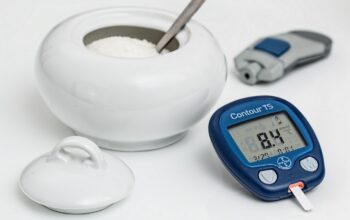There is a silent epidemic of men suffering with low testosterone. Why are they not seeking help? The reason may simply be a lack of awareness and education. Symptoms of low testosterone are often brushed off as a normal part of aging, irrespective of the age at which you present with symptoms. Testosterone Deficiency has been trivialised with comparisons to the female menopause. The poorly termed MENopause and Andropause are not appropriate or accurately describe the condition. The menopause is a defined point in a female’s life when menstruation stops, oestrogen levels decline, and the ovaries no longer release eggs for potential fertilisation.
Testosterone Deficiency (low testosterone) is defined by NHS Endocrinologists as either Primary Hypogonadism, a pathology involving the testes, or a Secondary Hypogonadism, a problem with the brain’s signalling down the testes. In fact, there are numerous other causes. The term used to describe these causes in any other medical conditions, apart from Testosterone Deficiency, is idiopathic. NHS Endocrinologists have an aversion to use this term believing that everyone should wait and eventually they will recover. If you do not have a demonstrable organic pathology, it’s unlikely that you will be offered TRT under the NHS. There are numerous risk factors such as past use of Androgenic Anabolic Steroids, recreational drug use, anti-depressant use, opiates, traumatic brain injury, Post Traumatic Stress Disorder, to name a few.
The onset of the symptoms of low testosterone are insidious, with the primary presenting symptoms being low mood, anxiety and an element of depersonalisation. This is usually followed by cognitive decline, fatigue and low libido. Physical symptoms such as erectile dysfunction, loss of bone strength, loss of lean muscle mass and increased fat are very real, but often secondary.
The tired cliché of the typical patient is either ‘the grumpy old man’, or the young man who has abused anabolic steroids in the past and brought it upon himself. Their concerns are either trivialised by their GP’s. Your typical NHS doctor is time poor, low mood is treated with antidepressants, low libido with the little blue pill. The NHS adopts a fire-fighting medical model, it is under-resourced and under-financed. To affect a sustainable change, you must look for a cause and adopt a logical and methodical approach to treatment.
The truth is that there is no set demographic, there is no typical patient. We have men come into our clinic who are their 20’s, right through to men who present in their 60’s. We have men with beards, men who look physically normal, yet they have the classical symptoms and the quantitative markers to support a diagnosis of Testosterone Deficiency. There are British Society for Sexual Medicine guidelines for the treatment of Testosterone Deficiency that your doctor should be adhering to. Yet through a mix of either arrogance or ignorance, they are largely being ignored due to false preconceptions and, in part, the negative association of testosterone with Performance Enhancement Drugs.
Nothing could be further from the truth. My patients are all seeking some semblance of normality. They are seeking back the mental well-being, energy and clarity of thought that they once had, rather than the ‘brain fog’ that is now dulling all that life has to offer. Testosterone Replacement Therapy is about normalising your male androgen levels for long term physical and psychological well-being. It’s about making you, you again.
Dr Robert Stevens MBChB MCGP Dip.FIPT




